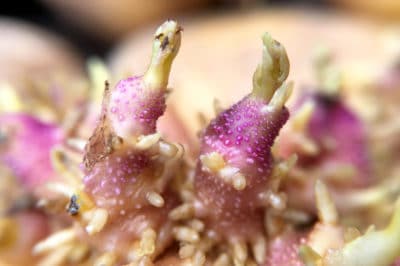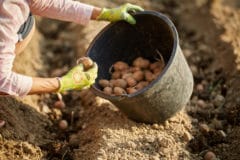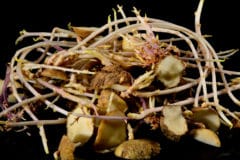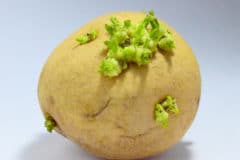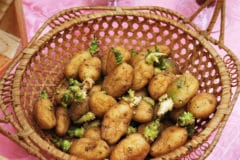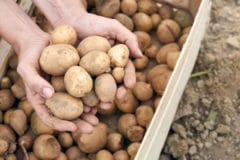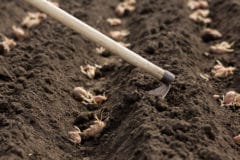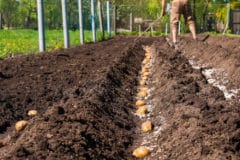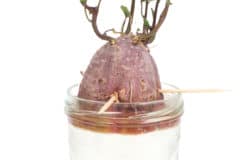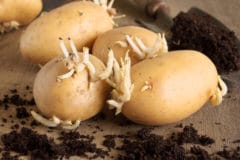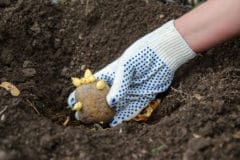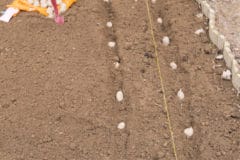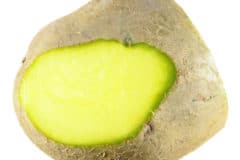Why Potatoes Sprout
Potatoes are usually not grown from seed – vegetative propagation is much more common. Potatoes “know” that and will begin to sprout once the dormancy period is long enough. Sprouts are a sign that the potato is actively converting stored starches into sugar and the other nutrients the potato needs to grow a new crop.
When Not to Plant Sprouted Potatoes
Sometimes you should not plant your sprouted potatoes. Here are some examples:
- The sprouts are more than a foot long.
- The sprouts are very brittle and break as soon as you touch them.
- The tuber has begun to shrivel, indicating it’s used all its stored nutrients.
- The potato shows signs of rot or mold.
Sprouting Stages
The first step in sprouting is the appearance of a cluster of pink and white nubbins appearing from the eyes of the potato. If you have way more sprouting potatoes than you want to plant, cut these off and eat the potatoes. Next, a few of these nubbins will begin to elongate. If not exposed to light, they’ll continue to extend and develop a few tiny, widely-spaced whitish leaves.
Chitting Sprouted Potatoes
Chitting means to expose your potatoes to light and let them green up. Chitting causes the tuber to produce solanine, a toxic compound that makes animals avoid the plant. It also makes the tuber inedible to humans. If your potatoes have sprouted fairly close to the last frost date, chit them for two or three weeks and plant as you usually would.
Sprouting in Early Spring
Early potatoes tend not to store as well and are much more likely to break dormancy well before you would usually plant them in the garden. If that’s the case, you can plant them indoors and get them ready to put out in the garden as soon as temperatures warm up a bit. Potato grow bags made from landscape fabric are a good choice, but any container will work. Move to the garden after the last frost date.
Growing Potatoes
Give your sprouted potatoes the best conditions for an optimum harvest. Potatoes prefer a sandy loam that is high in organic matter and slightly acid. They need regular water during the growing season. Protect plants from potato bugs with row cover and hand-pick insects and larvae. Potatoes don’t compete well with weeds.
